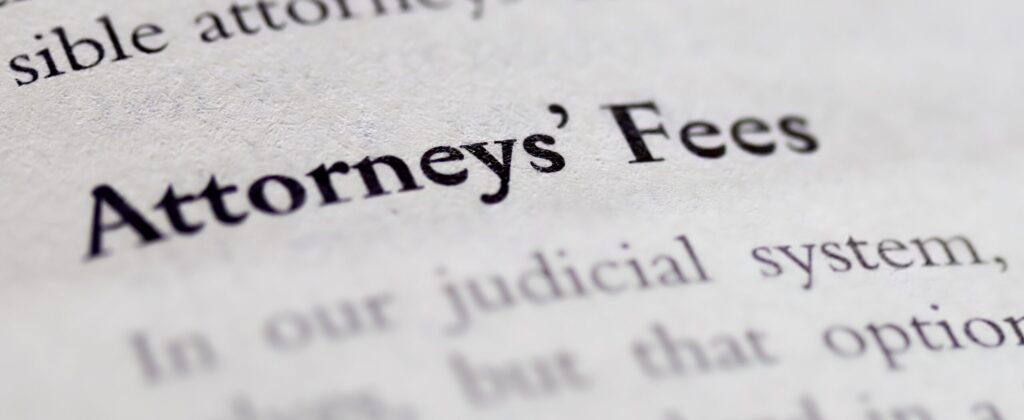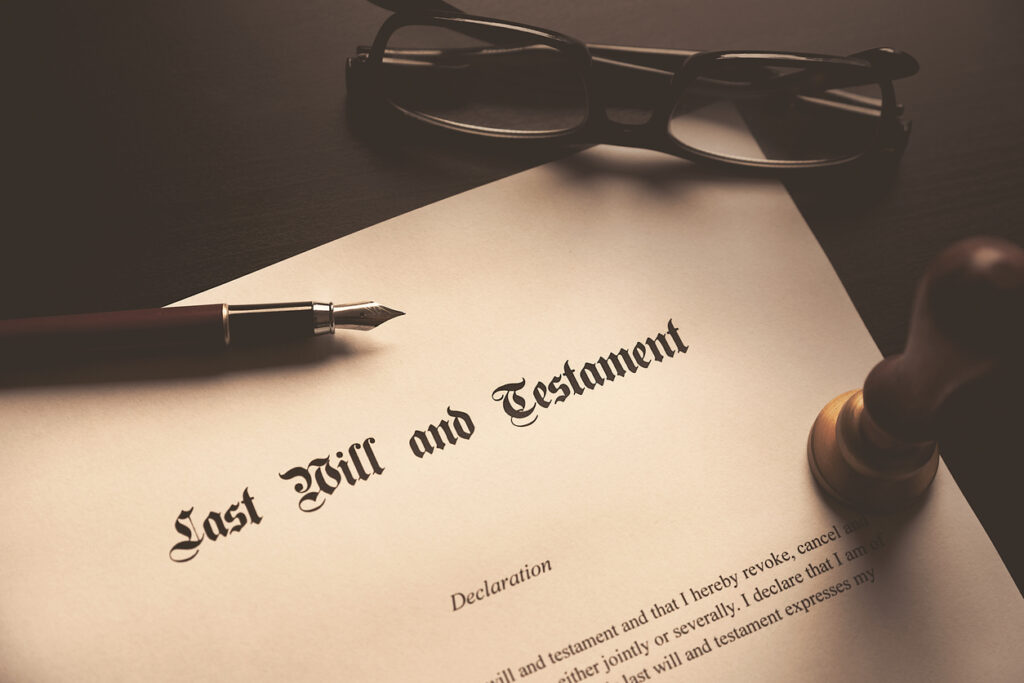If you are the beneficiary of an estate and are counting on receiving an inheritance, you may be worried about whether an executor can change a will after death.
- Suppose the executor of the estate is also a beneficiary, and the will provides for them to receive only a small portion of the estate. Can an executor override the will to provide themselves with a greater inheritance?
- Suppose the executor wishes to provide an inheritance to a child of the decedent who was omitted from the will because he was born after the will was created. Can an executor change a will after death to provide an omitted child with an inheritance?
- Suppose the executor wants to make minor changes to the will to clear up ambiguities within the document. Can an executor of a will change the will to clarify its ambiguous terms?
- Suppose the executor wishes to sell property the will provides for a beneficiary to inherit. Can a will executor change the will to allow her to sell the property?
- Suppose the executor found out that certain terms in the will were products of undue influence. Can an executor of a will remove a beneficiary who used undue influence on the decedent to secure themselves a greater inheritance?
All of the aforementioned scenarios present interesting legal quandaries. In most of the scenarios, the executor has rational reasons for wanting to change the will. However, given that the executor’s primary duty is to carry out the terms of the will as they’re written, is it allowed for the executor to change the will?
Discover the answer to this complicated question in the following section. And if you wish to get further help with a specific legal issue relating to the executor changing a will or estates in general, feel free to reach out to our talented probate attorneys for a free consultation.

Under What Circumstances Can the Executor of a Will Change the Will?
There generally are no circumstances under which the executor can change the will. Once the creator of a will, known as the testator, dies, their will becomes set in stone. In other words, the document cannot be revoked or further altered. Therefore, the executor is required to carry out the terms of the will as they’re written.
That said, there are circumstances that wouldn’t necessarily change the will, but would change how a will is ultimately administered. For example, a beneficiary could disclaim their share of the estate to allow it to pass to their child instead of them.
All Affected Beneficiaries Agree to the Change
Suppose several siblings are the only beneficiaries of their parents’ estate. The will does not provide for the siblings to inherit equal shares of the estate because when their parents drafted their will, they divided the estate based on each child’s financial situation at that time. However, since then, the siblings’ financial situations have improved, and now they would prefer to inherit equal shares of the estate. If all the siblings agree to changing the will, can the executor override the will?
Technically, the answer is still no, since a will cannot be changed after the testator has already passed away. However, there is nothing stopping the executor and the beneficiaries under the will from entering into an agreement to alter the distribution called for in the will. To do so, however, the court would need to approve the changes as part of a petition filed with the court.
Another option to avoid court approval of the change would be for the beneficiaries to privately agree to share the inheritance with one another. This, however, could raise gift tax issues as the transfer may be treated as a gift from one sibling to another.
Power of Appointment
In some instances, testators grant a person what is known as power of appointment, which allows the person named to change the disposition of assets in the will. For example, a person with power of appointment could change the disposition of assets to provide a greater inheritance to a beneficiary who is struggling financially.
Powers of appointment can be broad or limited, general or special, and they may not take effect until a particular event occurs or a condition is met, such as the value of the estate exceeding a particular threshold.
Nonetheless, persons with power of appointment must be careful. For one, they should familiarize themselves with the terms of their power of appointment to ensure they are not taking actions that go beyond the scope of their authority. Two, if the person granted a power of appointment is also the executor, they must remember that they’re still bound to their fiduciary duties. In other words, the power of appointment must be balanced against their duty of impartiality to the beneficiaries. They must always keep the beneficiaries’ best interests in mind.
For executors who have been conferred with power of appointment, it may be a good idea to go over the terms of your power of appointment with a probate attorney. This way, you can get clear on what you can and can’t do and rest easy knowing you will not be sued for executor misconduct.
Selling Assets
Suppose a will provides for a beneficiary to inherit a home. However, because the estate in question is both large and complex, estate administration could take a year, if not longer, to complete. Rather than the home remaining unoccupied during that time, which would result in extra expenses for the estate, the executor wishes to sell it since the housing market is at an all-time high. He would distribute the proceeds from the sale to the beneficiary at the close of administration. Can an executor override a will to sell a property that was supposed to go to a beneficiary?
In general, the executor’s right to sell property in probate trumps the beneficiary’s right to receive the property. However, the executor will need to show the court why the estate would benefit from the sale, especially if they do not have the consent of the beneficiary set to receive the property.
One of the most common reasons for selling a property that was supposed to go to a beneficiary is to pay necessary estate administration expenses, like taxes. If the property is eventually sold, the beneficiary is not totally out of luck, though, because he or she will receive the net proceeds from the sale at the close of probate. By selling estate property, the executor is, in effect, changing the will, as they are distributing money to the beneficiary rather than the actual home.
It’s important to remember that a decedent’s debts must always be paid before any distributions are made to beneficiaries. If an estate lacks the funds to satisfy valid creditor claims, the executor may have no choice but to sell estate property to repay the remainder of the debts.
Even though executors may not be required to keep beneficiaries informed about potential sales of estate property, it is good practice for them to keep beneficiaries informed anyway. Perhaps a beneficiary has an emotional attachment to the property they are supposed to inherit and does not wish for it to be sold. If this is communicated to the executor, they may decide against selling the property in question.
An executor not communicating with beneficiaries about what is happening with an estate is a recipe for executor problems with beneficiaries, which not only could slow down administration but result in an executor misconduct claim being brought against the executor. Executors must remember they are fiduciaries who are supposed to be looking out for the beneficiaries’ best interest at all times.
Will Contests
Suppose an executor discovers that a beneficiary may have been exerting undue influence on the testator when they’d been alive to pressure them into leaving them a larger share of the estate. Being that undue influence is a form of elder financial abuse, it doesn’t seem right to the executor that this beneficiary receive any portion of the estate. Can an executor override a will to change the term in the will that provides the beneficiary in question with a greater inheritance?
While an executor cannot override a will in this scenario, they could file a type of petition known as a will contest to try to have the problematic portions of the will invalidated. If the will contest is successful, the assets mentioned in the portion of the will that was procured by undue influence will either be distributed according to the laws of intestate succession or the terms of the decedent’s prior will.
In some instances, when undue influence or another act of malfeasance related to a will is successfully proven, the perpetrator, given they are a beneficiary, could be disinherited, or removed as a beneficiary.
It’s important to remember that there must be a valid grounds for contesting a will. Contesting a will just because you are dissatisfied with your inheritance won’t fly with the court. While executors generally can contest wills, so can beneficiaries and other interested parties, but they must have a financial stake, known as standing, in the outcome of the contest
Will contests require substantial evidence, which can be difficult to gather without the help of a probate attorney who knows exactly what to look for. If you plan on contesting a will, your chances of successfully contesting a will can increase significantly by working with a knowledgeable legal team.
Omitted Spouse or Child
An omitted spouse, also known as a pretermitted spouse, refers to a spouse who was unintentionally omitted from a will because the testator created their will prior to knowing about the existence of the spouse in question. In the same vein, an omitted child refers to a child who was unintentionally omitted from a will because the testator created their will prior to knowing about the existence of the child in question.
California Probate Code section 21610 provides for omitted spouses to have inheritance rights. For example, an omitted spouse has the same community property rights as spouses who were not omitted.
Specifically, the inheritance rights of omitted spouses entitle them to:
- Half of the community property
- Half of the quasi-community property
- Half of the wages earned during marriage
- The portion of the deceased spouse’s separate property that the spouse would have received had the decedent died intestate, or without a will. The omitted spouse should not receive more than 50% of the value of the separate property in the estate.
California Probate Code section 21620 provides for omitted children to have inheritance rights as well. Specifically, omitted children have the right to receive the inheritance they would have received had their parent died intestate.
That said, if certain conditions exist, the state may not consider a spouse or child “omitted,” meaning they wouldn’t have the inheritance rights guaranteed by California Probate Code sections 21610 and 21620.
Specifically, a spouse or child would not be considered “omitted” if any of the following is true:
- The decedent’s will or trust specifically disinherits the spouse or child.
- The spouse or child were adequately provided for through other means, such as beneficiary designations (e.g., bank accounts, life insurance policies, annuities, IRAs).
- The spouse signed a prenuptial or postnuptial agreement waiving their inheritance rights.
When there is an omitted spouse or child, the executor must provide their inheritances to them even though they were not provided for in the will. This effectively changes the terms of the will— although it’s important to keep in mind that the actual will is not being changed. All it means is that beneficiaries’ inheritances could potentially be reduced as a result of the executor having to provide the omitted spouse or child the inheritances they are guaranteed under the law.
If you are an omitted spouse or child who wishes to learn more about your inheritance rights, or you need help enforcing your inheritance rights, a probate firm can be a helpful resource.
Ambiguous Language
Suppose a will calls for a property to go to the decedent’s cousin Bob. However, the decedent had two cousins named Bob. This potentially ambiguous language in the will makes it unclear to which cousin the decedent intended for his property to pass. The executor, based on conversations he had with the decedent, believes he knows which cousin the decedent was referring to in his will. Can a will be changed by an executor to reflect what he knew to be the decedent’s true final intentions?
It would not be wise for the executor in this scenario to make the unilateral decision to change the will. If he were to proceed with doing so, the cousin of the decedent who did not receive the property could bring a claim against the executor for . Executors have a fiduciary duty to remain impartial at all times, and changing the will to reflect who the executor believed should inherit the decedent’s property could be regarded as a breach of duty.
While ambiguous language can be frustrating for executors and the potential beneficiaries, there may be an easy solution to this problem. The executor can file what is known as a Petition for Instructions to get the court’s help in interpreting the ambiguous language.
While the court will always examine the contents of the will for clues regarding the disposition of the assets in the ambiguous portion of the will, it may consider extrinsic evidence as well. For example, the executor may be asked to provide testimony about the conversations he had with the decedent related to the will.
While resolving ambiguous language in a will isn’t the same as changing a will, it could impact the inheritances of beneficiaries. For example, when the decedent’s cousins in the aforementioned example initially read the will, they may have both believed they were receiving the property at issue. However, the court could later determine that only one of the decedent’s cousins is entitled to the property, resulting in the other cousin not receiving the inheritance he was expecting to receive.
For their part, executors should avoid interpreting ambiguous language in a will on their own at all costs. The only scenario in which it might be appropriate is if all the beneficiaries are in agreement with the executor’s interpretation. That said, if there is ambiguous language in a will, it is always best for executors to consult with a probate attorney before making any determinations about the ambiguous language.
Disclaimer
Suppose a beneficiary would be bumped up to a higher tax bracket after accepting an inheritance from a decedent’s estate, and therefore, would prefer to disclaim her inheritance so it can pass to her adult child. Can a will be changed by an executor to replace the beneficiary disclaiming her inheritance with her adult child?
While beneficiaries are entitled to disclaim their inheritance, they have no say as to who would inherit their portion of the estate once they disclaim their inheritance. In other words, the beneficiary in question would not be able to have her portion of the estate pass to her child simply by choice. Additionally, a beneficiary disclaiming their inheritance would not authorize the executor to change the will.
Ultimately, if a beneficiary disclaims their inheritance, their inheritance must either pass to the next beneficiary named in the will, known as a contingent beneficiary, or to the next intestate heir. While this would not technically change the will, it would change who gets the decedent’s property, since the portion of the estate at issue would be passing to someone other than whom the decedent originally named in their will to inherit it.
Reformation of a Will
Suppose a decedent unambiguously stated in his will that he wished for the entirety of his bank accounts to be left to charity if the decedent and his wife died simultaneously, and to his wife if he predeceased her. Suppose further that the will said nothing about who would inherit property if the decedent outlived his wife. Who would inherit the decedent’s property if he did, in fact, outlive his wife? This was the exact scenario presented to the Court in the landmark California Supreme Court case In re Estate of Duke.
In the case of Duke, the named charities argued that the will should be reformed based upon evidence that the decedent intended them to inherit his estate in the event his wife were no longer alive. The decedent’s intestate heirs argued, instead, that the will was unambiguous and was silent as to who should inherit under the circumstances and that they should inherit as heirs. The court found that the court should consider evidence of the testator’s intent even if the will appeared unambiguous on its face.
Before Duke, it was only possible to reform ambiguous wills with the introduction of extrinsic evidence. However, since 2015, even unambiguous wills can be reformed to honor the true final intentions of the testator. That said, for an unambiguous will to be reformed, a case with “clear and convincing evidence” of the decedent’s true final intentions and mistake must be presented to the trial court.
While reforming a will would not amount to the executor changing the will, it would amount to a decedent’s estate being disposed of differently than what was called for in their will.
Can an Executor of a Will Remove a Beneficiary?
An executor of a will is not permitted to remove a beneficiary. As previously stated, once a testator dies, their will becomes both unalterable and irrevocable.
Nevertheless, if an executor has a valid reason for wanting to remove a beneficiary (e.g., they used manipulation or fraud to be named as a beneficiary), they could try filing a will contest, as discussed above, to try to have the portion of the will affected by the wrongful act invalidated and the beneficiary who committed the wrongful act disinherited.
Can an Executor Remove a Beneficiary From a Trust?
A trust is a completely different document from a will, and it is administered by a successor trustee, not an executor, after the death of the trust creator, known as a settlor, grantor or trustor.
The executor does not have any authority over the decedent’s trust, as they only are authorized to preside over the decedent’s estate. Therefore, an executor cannot remove a beneficiary from a decedent’s trust or take any other actions related to their trust.
What Happens if the Executor Does Not Follow the Will?
The executor generally has a fiduciary duty to carry out the terms of the decedent’s will as they’re written. Of course, there are exceptions to this rule (e.g., power of appointment), but for most executors, this rule applies.
When an executor fails to follow the will by taking actions that are contrary to the stated terms of the document, the consequences can be harsh. We go over what the potential consequences of an executor not following the terms of a will are in the following subsections.
Suspension and Removal
If beneficiaries discover that the executor is disregarding any part of the will (e.g., when making estate-related decisions or distributions), they have a right to sue the executor.
Disregarding a will’s terms is a serious offense, one that could result in the executor being suspended while they’re misdeeds are further investigated or altogether removed
If you are a beneficiary attempting to have an executor suspended or removed for misconduct, you will need to file a petition with the court that details in what ways the executor failed to follow the will. In addition, you may want to list any other acts of wrongdoing you suspect the executor to have committed to bolster your claim.
It can be extremely helpful to involve a probate attorney in this process, as an investigation may need to be carried out to discover the full extent of the executor’s misconduct. Your attorney also would be able to draft a compelling petition for removal on your behalf.

Surcharge
If an executor’s disregard for the terms of a will caused financial harm to the estate, it may be possible to surcharge the executor for the damage they caused. To do this, you will need to file a petition with the court.
In most instances, when beneficiaries are seeking to surcharge the executor, they are also seeking removal of the executor. If this is the case, you don’t need to file two petitions. You can file a single petition with the court for a surcharge and removal.
If your petition for a surcharge is granted, the executor will be personally liable for paying damages. In other words, they will have to pay the surcharge from their own pockets.
Attorney Fees and Costs
If the court approves your petition for removal of the executor and/or a surcharge, and you utilized the services of a law firm, you may be able to recover your attorney fees and costs from the executor or the estate.
That said, it’s important to remember you don’t have an absolute right to recover attorney fees and costs. The decision of whether you should be awarded attorney fees and costs rests fully with the court.

Have questions about whether an executor can change a will? We’re here to help.
If the executor of an estate you stand to inherit from is changing the terms of the will or disregarding its terms, you should be very concerned. The majority of executors do not have this right.
Executors must also take care to only act in accordance with the rights they’ve been granted. Rarely is changing a will a right they have.
If you are a beneficiary or executor with estate-related questions, the knowledgeable team of probate attorneys at Keystone Law Group is here to help. We specialize in estates and trusts, and therefore know how to handle even the most complex of issues.
Call us today to request a free consultation and find out how we can help with your legal issue.











